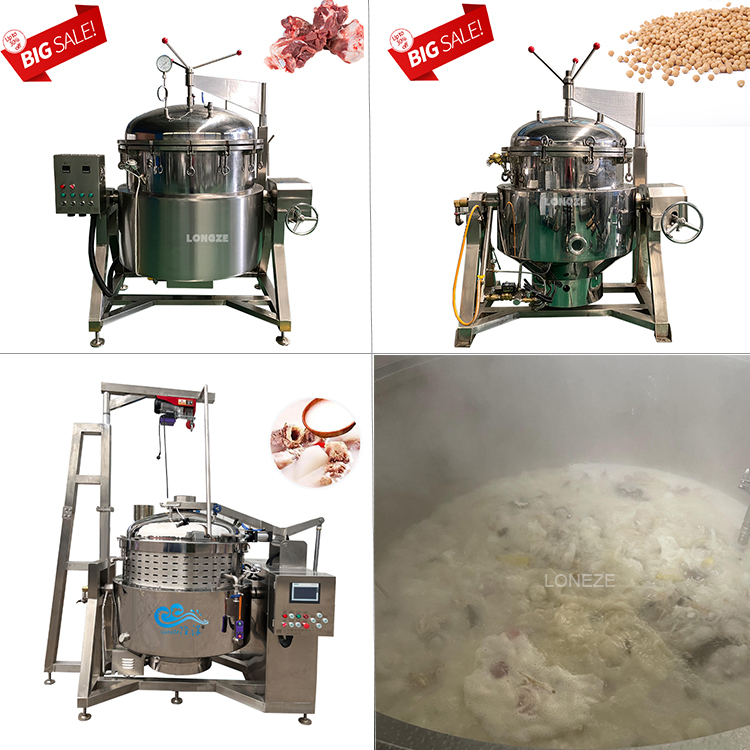The Power and Versatility of Industrial Pressure Cookers
Writer:www.firemixer.com Time:2023-06-27 15:09 Browse:℃
In the world of commercial kitchens and food processing industries, efficiency and productivity are paramount. Among the many appliances that contribute to streamlining operations, industrial pressure cookers stand out as versatile workhorses. These robust and powerful cooking devices offer an array of benefits, revolutionizing the way food is prepared, processed, and preserved on a large scale. In this article, we explore the features, applications, and advantages of industrial pressure cookers.
Unleashing the Potential of Industrial Pressure Cookers
Enhanced Cooking Speed: Industrial pressure cookers harness the principles of pressure and steam to drastically reduce cooking times. By sealing in the steam, pressure cookers raise the boiling point of water, allowing food to cook at higher temperatures. This accelerated cooking process can reduce cooking times by up to 70%, enabling rapid food preparation and enhancing efficiency in busy kitchens.
Improved Food Quality: Pressure cooking retains more nutrients, flavors, and natural colors in food compared to traditional cooking methods. The high-pressure environment ensures that moisture is locked in, resulting in tender and succulent dishes. Moreover, the shorter cooking time helps to preserve the natural vibrancy and integrity of ingredients, contributing to visually appealing and flavorful meals.
Cost and Energy Efficiency: Industrial pressure cookers are designed to optimize energy consumption. The reduced cooking time translates into substantial energy savings, minimizing utility costs in large-scale operations. Furthermore, the pressurized environment allows for the use of less water during cooking, reducing water usage and expenditure.
Increased Productivity: The ability to cook large quantities of food quickly and efficiently is a significant advantage of industrial pressure cookers. These machines come in various capacities, enabling the preparation of large batches of soups, stews, sauces, and more in a single cycle. This high-volume production capability is invaluable for catering services, institutional kitchens, and food processing plants.
Versatility in Applications: Industrial pressure cookers are adaptable to a wide range of cooking requirements. They can handle various food types, including meats, vegetables, grains, legumes, and even delicate seafood. Additionally, pressure cookers are adept at carrying out tasks such as sterilization, canning, blanching, and reducing cooking times for dried beans and grains. Their versatility makes them indispensable tools for many industries.
Safety Measures: Industrial pressure cookers prioritize safety with advanced features such as multiple pressure release valves, pressure indicators, and locking systems. These mechanisms ensure controlled pressure levels and prevent accidental openings during operation. Additionally, modern models often include programmable timers and digital controls, adding further convenience and precision to the cooking process.
Conclusion
Industrial pressure cookers have emerged as indispensable assets for commercial kitchens and food processing industries. Their ability to expedite cooking times, enhance food quality, reduce energy costs, and increase productivity has transformed the way large-scale food operations operate. From reducing cooking times to preserving nutritional value and flavors, these versatile appliances have revolutionized the industry, allowing chefs and food manufacturers to deliver exceptional meals efficiently and consistently.
As technology continues to advance, we can expect further innovations in industrial pressure cookers, catering to the evolving needs of the food industry and ensuring greater convenience, safety, and performance in commercial kitchens worldwide.
